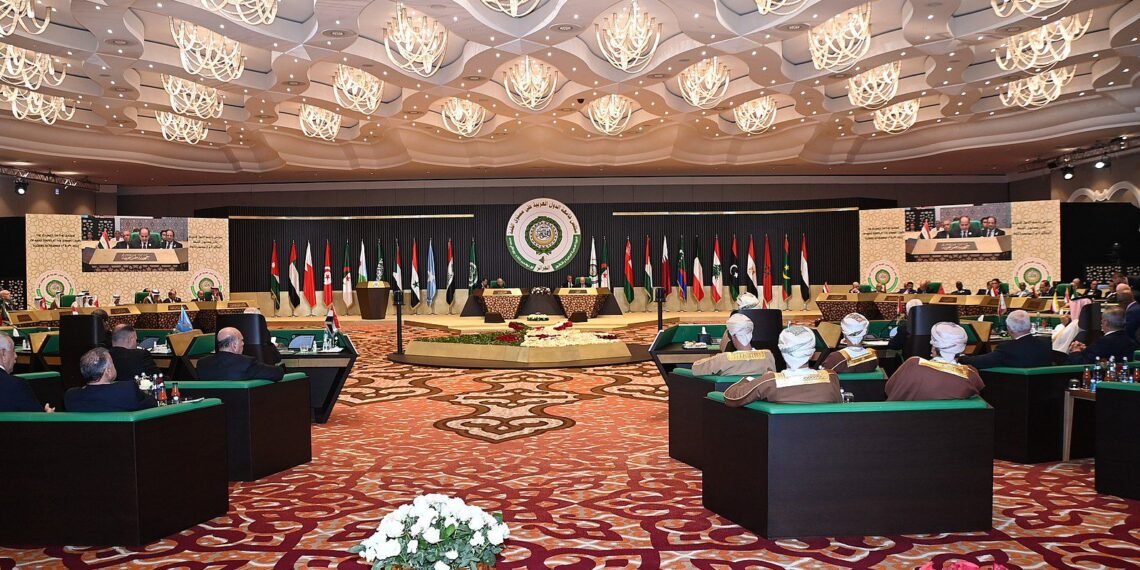The Arab League concluded its summit in Jeddah on Friday with a call for immediate and practical measures to address the Syrian crisis and protect the country’s unity and sovereignty. In the final communique, known as the Jeddah Declaration, the League emphasized the importance of steps that align with the aspirations of the Syrian people, combat terrorism, and create favorable conditions for the safe return of refugees.
Significantly, Syrian President Bashar Al Assad received a warm welcome from Saudi Arabia’s Crown Prince Mohammed bin Salman at the summit, marking a notable shift in regional dynamics. Arab leaders had previously ostracized Al Assad’s government due to its crackdown on protesters in 2011, which led to a devastating civil war resulting in the loss of more than half a million lives and the displacement of millions of Syrians.
In his address to fellow leaders, President Al Assad expressed hope for a new era of Arab cooperation, as Syria was welcomed back to the Arab League after a 12-year suspension. He emphasized the need for solidarity, peace, and prosperity in the region, replacing the previous era of war and destruction.
The summit also addressed the ongoing conflict in Sudan, which erupted when two generals vied for control of the country, leading to disputes over the integration of the Rapid Support Forces militia into the army. Sudan’s army chief, Gen Abdel Fattah Al Burhan, who sent a representative to the summit, took the anticipated step of removing paramilitary RS chief Gen Mohamed Dagalo, also known as Hemedti, from his post on the ruling Sovereign Council.
Regarding efforts to end the conflict in Sudan, Saudi Foreign Minister Prince Faisal bin Farhan mentioned ongoing US-Saudi collaboration to achieve a humanitarian truce. Prince Faisal stressed the urgent need to address the dire humanitarian situation in Sudan and called on Sudanese parties to engage in responsible dialogue. While the Jeddah talks on Sudan are set to continue, it is premature to anticipate a breakthrough at this stage.
The summit centered around the themes of “renewal and change,” aligning with Crown Prince Mohammed bin Salman’s recent endeavors to realign Saudi Arabia’s foreign policy and regional engagement. Riyadh has sought to improve relations with Iran, restore ties with Syria, and bring an end to its involvement in the protracted Yemeni war. Iran, a significant backer of the Syrian government, signed an agreement with Saudi Arabia in China, expressing support for Syria’s reconciliation with regional neighbors.
In its final communique, the Arab League also addressed Iran’s nuclear ambitions, emphasizing that any deal with Tehran should directly address its regional behavior and support for proxy groups. The league adopted a total of 32 draft resolutions as part of its Arab action plan for 2023.
However, the summit was not without its challenges. During the final press conference, a Syrian state television reporter questioned the relevance of the Arab League, sparking a contentious exchange with Arab League Secretary-General Ahmed Aboul Gheit. Despite differing opinions on various issues, Arab officials emphasized the need for greater mutual understanding and cooperation among member states.
The Jeddah summit served as a crucial test for Prince Mohammed’s plans to reshape the region after years of conflict. In his address, the Crown Prince expressed hope that Syria’s return to the Arab League would contribute to the resolution of its crisis. He also reaffirmed Saudi Arabia’s commitment to preventing the region from becoming a battleground for conflicts and heralded the end of painful years of struggle.
While the United States has voiced objections to normalization with President Al Assad, citing the need for progress toward a political solution, Saudi Foreign Minister Prince Faisal emphasized the necessity of dialogue to address ongoing challenges. The summit showcased a new approach aimed at fostering cooperation and dialogue in the pursuit of regional stability.


